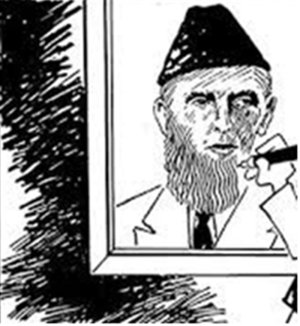Stark
Local Club Captain
- Joined
- Aug 31, 2013
- Runs
- 2,264
ISLAMABAD: The All India Radio (AIR) has handed over to Pakistan the recordings of two important speeches by the country's founder Muhammad Ali Jinnah.
Pakistan Broadcasting Corporation (PBC) is planning to broadcast these speeches, delivered June 3 and Aug 11, 1947, after checking the quality and authenticity some time next week, local media reported.
The AIR handed over the recordingsafter four years of efforts by the PBC. The Daily Times quoted sources in Radio Pakistan and PBC as saying that India has also agreed to hand over more recorded material of Jinnah. The speech has Jinnah declaring Pakistan as a secular state while addressing Pakistan's constituent assembly.
Source:http://timesofindia.indiatimes.com/...-Jinnah-speech-tapes/articleshow/22311695.cms








